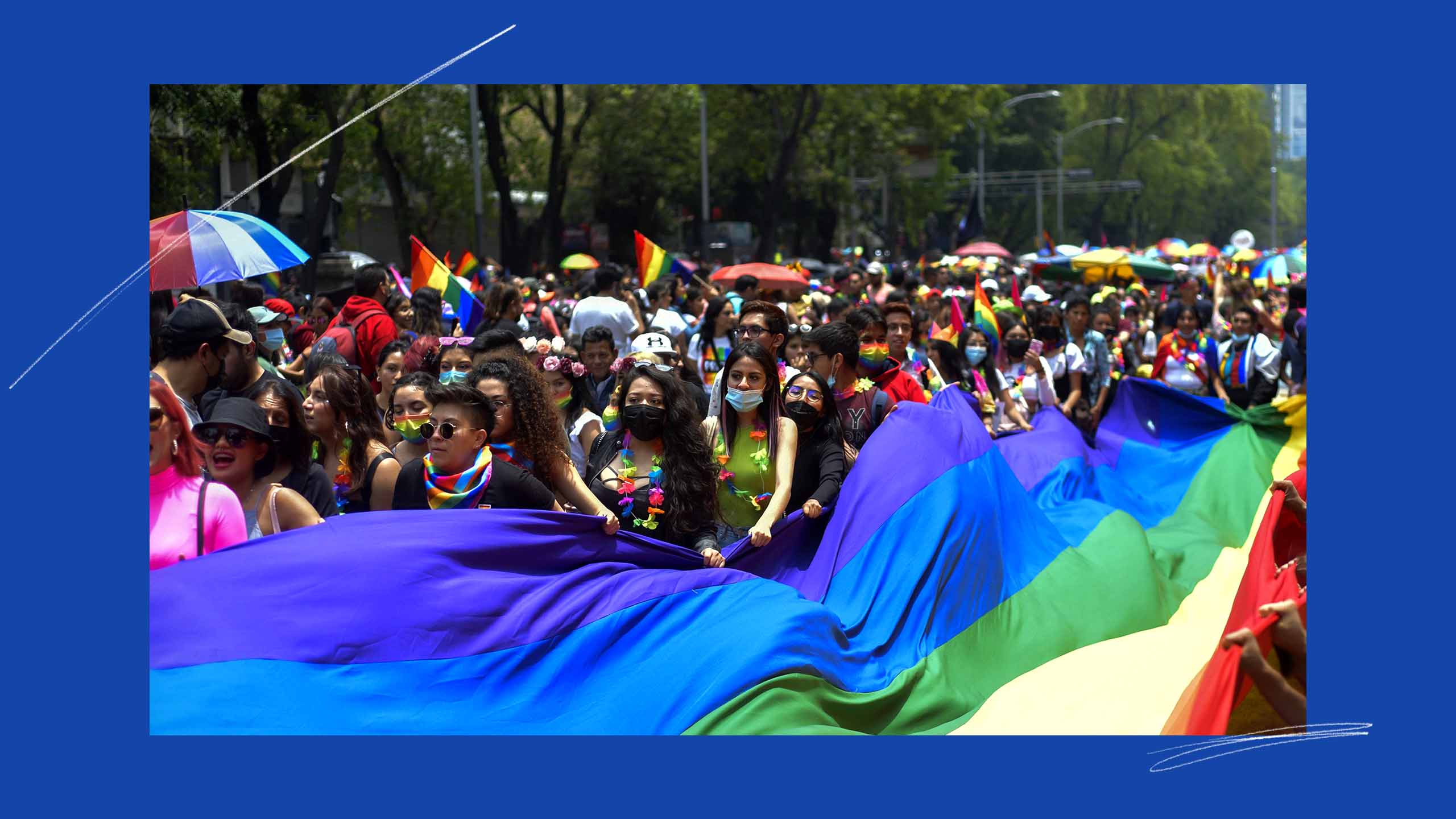LGBTQ+ equality is closer than ever in Mexico following two historic decisions impacting its queer and trans community. Last week, Mexico inched closer to banning the discredited, harmful practice of conversion therapy and legalizing same-sex marriage across its 32 states.
In an overwhelming 69-2 vote, the Senate of the Republic voted on October 12 to ban all forms of conversion therapy targeting LGBTQ+ people. These practices, which range from talk therapy to, in rare cases, water torture and shock treatment, have been condemned by leading medical authorities like the World Health Organization and human rights experts with the United Nations.
The bill is now in the hands of the Chamber of Deputies, which will soon vote on it. If the legislation is passed in Mexico’s lower parliamentary house, individuals who are currently undergoing conversion therapy can file an administrative appeal and go to the police to report practitioners. Anyone found to be offering such therapies can also be fined up to 1,000 pesos, and mental health professionals who offer conversion therapy can lose their licence to practise.
The law does not include provisions of reparations and compensation to survivors of conversion therapy who are no longer undergoing the practice.
Last week’s parliamentary vote followed years of advocacy on the part of LGBTQ+ activists and allies. A bill to ban conversion therapy, which studies have shown to be ineffective at changing the identities of LGBTQ+ patients, was first introduced in 2018 by lawmakers from the progressive political parties Citizen Movement, Morena, and the Green Party, in partnership with the LGBTQ+ rights organization Yaaj México.
Patricia Mercado, a lawmaker with the Citizen Movement party, said following the vote that the senate’s actions recognize that “there is nothing to cure” about being LGBTQ+.
“By prohibiting the misnamed ‘conversion therapies,’ we do not establish a sanction for those who ask for help, but for those who promise to ‘cure’ homosexuality or any sexual orientation and gender identity,” Mercado tweeted.
Twelve Mexican states, including Mexico City, have already had their own statutes on the books outlawing conversion therapy, according to the Gay Times.
On the same day that the conversion therapy ban advanced in Mexico’s parliament, the country’s largest state by population, the State of Mexico, also scored a major LGBTQ+ rights win. Its unicameral legislature, the Congress of the State of Mexico, voted 50-16 to recognize same-sex marriage, making it the 29th Mexican state to do so. The new legislation will give same-sex couples access to the same legal protections and recognition as heterosexual married couples.
“Each legislature has its history and today we are part of that history, by approving a law that advanced through the struggle of all the groups of the LGBTQ2S+ community and through lobbying among parliamentary groups,” tweeted centre-left lawmaker Juana Bonilla Jaime following the vote.
The bill’s passage follows years of efforts to advance LGBTQ2S+ rights in Latin America. In 2009, Mexico City became the country’s first municipality to recognize same-sex unions, and the following year, Argentina made history by becoming the first nation in the region to recognize full marriage equality for all couples. Since then, Brazil, Chile, Colombia, Costa Rica, Cuba, Ecuador and Uruguay have all followed suit.
LGBTQ+ advocates in Mexico say they are ecstatic about the historic marriage equality milestone.
“The State of Mexico was very late in recognizing equal marriage, so we are very happy,” Yaaj México director Iván Tagle tells Xtra. “This guarantees married same-sex couples all the rights and social security services that come with marriage. For example, during this pandemic, if you get sick, it will mean that your same-sex spouse will be able to make medical decisions for you. It redefines what family relationships look like.”
Tagle also celebrated Mexico’s long-awaited conversion therapy ban. In a 2020 interview with Reuters, he claimed that around 60 percent of young people who seek out his organization’s services are survivors of conversion therapy, which can cause lasting psychological damage, including elevated rates of suicidal ideation.
“We have been fighting for years to achieve a ban on conversion therapy,” Tagle tells Xtra. “It is a kind of reparation for people who have suffered this torture.”
Despite these significant steps forward, Mexico’s LGBTQ+ community still faces significant challenges, including high rates of violence. In 2019, 117 queer and trans people were murdered in the country, marking the deadliest year on the record for LGBTQ+ Mexicans. A report published the following year found that Mexico had the world’s second-largest number of anti-trans homicides after Brazil.


 Why you can trust Xtra
Why you can trust Xtra


